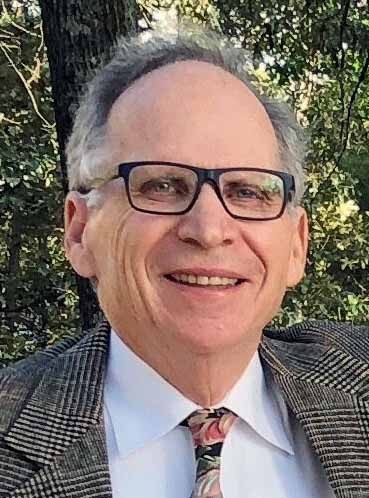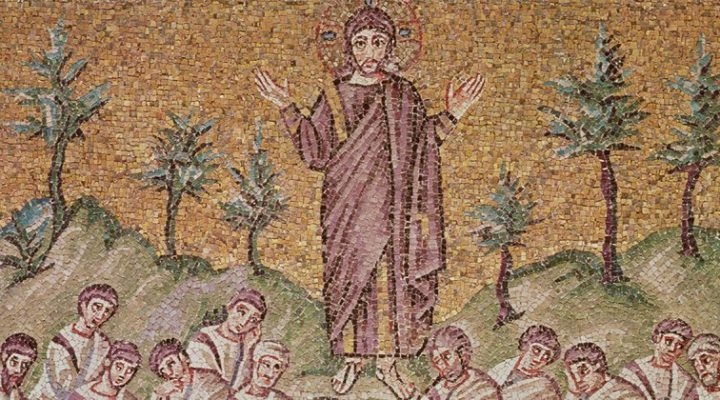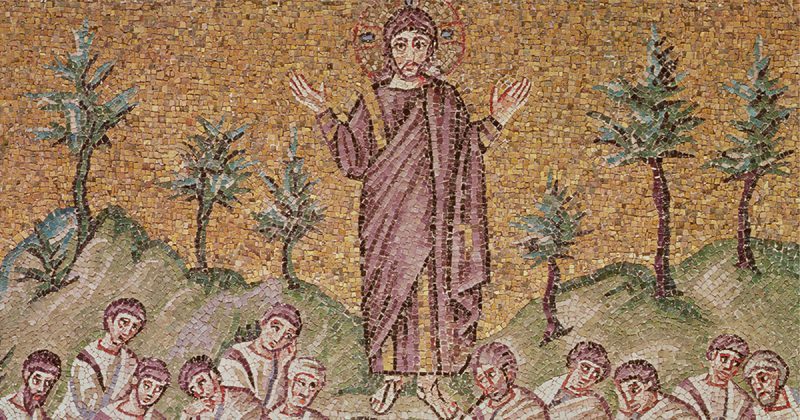Everything we know about Jesus reveals him to be a social person. He taught, healed, debated, blessed, protested and worshiped in social groups. His death was public, as were his resurrection appearances, ascension and his expected return.
Jesus taught his disciples to socialize, too: “Go into all the world, and preach the gospel.” And they did, canvassing the neighborhood in small groups. Those are inherently social tasks.
In Luke 4:16-18, Jesus initiated his own inaugural address for what many call the Social Gospel. In his hometown synagogue at Nazareth, he read from Isaiah 61:1-2b: “The Spirit of the Lord is upon me, because he has anointed me to preach good news to the poor. He has sent me to proclaim freedom for the prisoners, and recovery of sight for the blind, to release the oppressed, (and) to proclaim the year of the Lord’s favor.”

Russell G. Waldrop
Then he said: “Today this Scripture is fulfilled in your hearing.”
This identified for his congregation several areas of his social ministry:
“Good news to the poor.” When Jesus said, “You always have the poor with you,” that was not the end of his sentence. He added: “And you can help them anytime you want, but you won’t always have me.” In the first additional phrase, he assumes his disciples will want to help poor people. In the latter, he speaks of the brief time between his death and resurrection when he was unavailable. After his resurrection, though, he became available “always” and encouraged them in that ministry of helping the poor.
Additionally, in Greek grammar, the word “always” is not a prediction of the future. It is an adverb modifying a present–not-future–tense verb (“have”), thus making this an observation about the present time in Jesus’ day. It describes, not requires, poverty.
“Freedom for prisoners.” Jesus’ social ministry also is seen in Matthew 25:31-46, which describes six social groups: those who are hungry, sick, naked, imprisoned, estranged and sick, producing numerous combinations. Yet Jesus was not describing “sociological groupings.” His disciples were to identify with them personally. For example: “Remember those in prison as if you were their fellow prisoners, and those who are mistreated as if you yourselves were suffering.” This would include all six groups and any others who are mistreated.
“Recovery of sight to the blind.” Blind people are not necessarily sick, but they do have a disability. Jesus told his disciples to include them in their social events, along with poor and crippled people. All were welcome in his Social Gospel.
“Release for the oppressed.” Institutions are notorious for “systemic” oppression; that is, oppression built or “baked” into the system. Governments, schools, churches, even families, have ways to exclude people who are minorities, different or have little voice or power. Jesus said: “It shall not be that way with you.” Rather, he and his disciples would serve the “least” members of society.
“To proclaim the year of the Lord’s favor.” This was the “Jubilee,” a restructuring and redistribution of society’s economic resources (land, capital, debts) to prevent monopolies from crushing poor people.
Jesus presented his ministry’s social content as evidence of his being the Messiah. An imprisoned and doubting John the Baptist sent messengers to him to ask if he was, indeed, “the One to come.” Jesus sent the messengers back to tell John what they were seeing and hearing him do.
This included seven social groups for John to consider as Messianic evidence: “the blind can see,” “the lame can walk,” “those who suffer from dread skin diseases are made clean,” “the deaf hear,” “the dead are brought back to life,” “the good news is preached to the poor”; and the evidence of John and his followers.
Such a seven-point social curriculum was evangelistic evidence to John that Jesus was the Messiah. It supplemented what was not yet sufficient for John to believe: Old Testament messianic prophecies; Jesus’ own testimony and miracles; John and Jesus’ relationship; messianic hopes of Jesus’ disciples and the people.
“Some of our potential converts may respond better to Jesus’ evidentiary testimony than to what had not convinced John.”
Pastors and other evangelists today would do well to recognize that some of our potential converts may respond better to Jesus’ evidentiary testimony than to what had not convinced John. The two do not necessarily exclude one another, and they may dovetail into a more convincing witness than either one alone.
Other evidence that Jesus’ gospel was social include his overturning the money tables and tax records in the Jerusalem temple where the Caesar-priesthood collusion kept the population well below the poverty level of living.
In another example, when Jesus said, “Blessed are the poor” in the Sermon on the Plain, he was expanding his “blessed are the spiritually poor” of the Sermon on the Mount to include everyone in society, whatever their economic standing.
The socialness of the gospel is seen again in Jesus’ call to “sell your possessions and give to the poor,” something the disciples did after his resurrection. At Pentecost, travelers from 15 named nations came to follow Jesus, with 3,000 doing so in one day of mass revival.
Scripture says of the Christian community that “all the Lord’s followers often met together,” and that “they shared everything they had.” Moreover, “they would sell their property and possessions and give the money to whoever needed it” and “no one went in need of anything.”
Two claims have attempted to minimize Jesus’ instruction to sell their possessions and give of them to the poor. One says Jesus was making an individual prescription to the Rich Young Ruler alone, thus negating it for today. Yet even a cursory reading of the text shows Jesus was talking to all of his disciples, his “little flock.”
Another claim is based on Peter mistakenly telling Ananias and his wife Sapphira that “their” property was theirs, and the money gotten from selling it.
Peter was wrong here because “the earth is the Lord’s and everything in it.” Scripture merely records his mistake. Ananias and Sapphira’s secretive behavior and their lying show an “awareness of guilt” that overcame them upon sudden exposure before God by such an authority figure as Peter, and it cost them their lives.
“Modern churches have adopted policies other than what Jesus directed and what his early Jerusalem church followed.”
Modern churches have adopted policies other than what Jesus directed and what his early Jerusalem church followed. To their credit, many do have commendable programs of care, such as providing retirement centers with medical facilities or treatment centers for younger members.
Other Christian communities come closer to Jesus’ model. Examples include Koinonia Farm, founded in 1942 by Florence and Clarence Jordan and Mabel and Martin England, in Americus, Ga.; and The Simple Way community in Philadelphia, founded by Shane Claiborne and five Eastern University graduates in 1998.
In his post-resurrection Great Commission, Jesus said: “Teaching them to observe all things that I have commanded you.” That would include all things “social,” that is, the social relationships that make up his Social Gospel.
Russell G. Waldrop is a retired pastoral counselor and is vice president of the Waynesboro, Va., NAACP.
Related articles:
The Social Gospel ghosts of Rauschenbusch and Roosevelt haunt evangelicals still | Analysis by Rodney Kennedy
The true gospel is social | Opinion by Robert Sellers
Pastor seeks Southern Baptist resolution denouncing social justice


